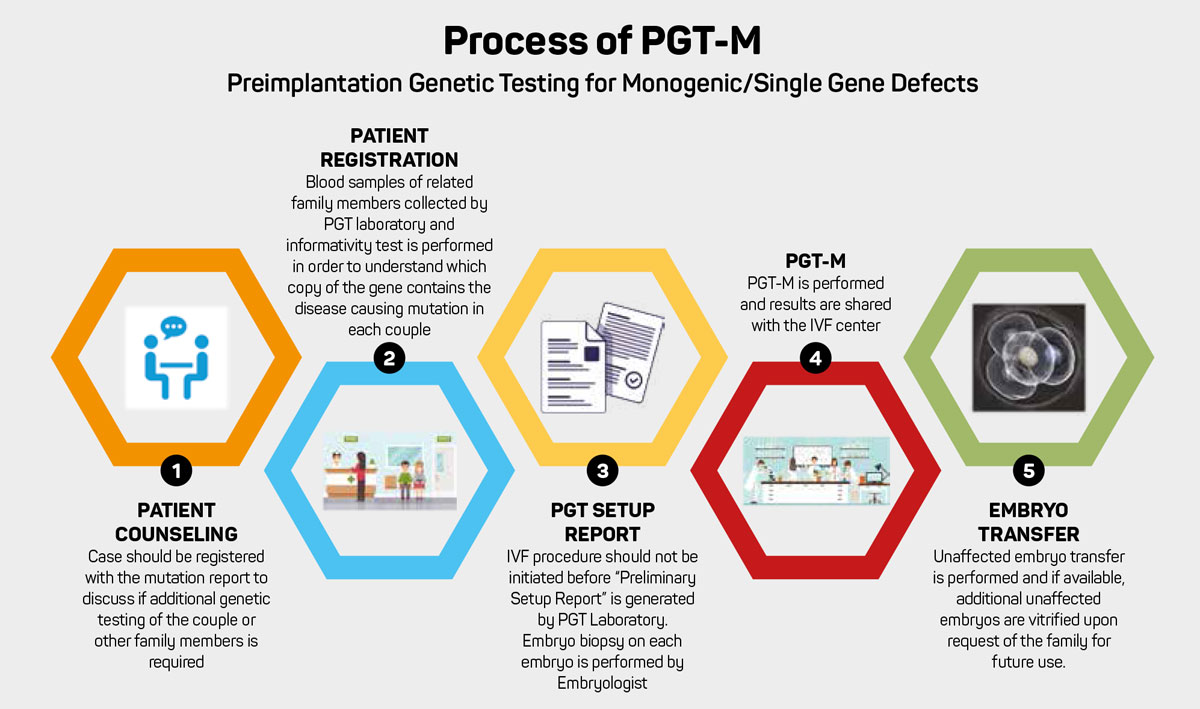PGT-M is a genetic diagnosis method applied to embryos to exclude the mutation of interest enabling single gene disease carrier couples to have unaffected children.

PGT-M Indications
Since PGT-M is a technology that enables the initiation of a healthy pregnancy, it has significant advantages over prenatal diagnosis.
Selection of HLA-matched Embryo with PGT-M
Currently, PGT for choosing HLA-matched sibling has become one of the most important applications in reproductive genetics.
Stem cell transplantation is one of the methods used in the treatment of some diseases such as thalassemia, leukemia, Fanconi anemia. For inherited disorders; this application allows selection of both unaffected and HLA matched embryos.
In cases like leukemia PGT application does not need to include any specifc mutation screening thus increasing the likelihood of HLA matched embryos to 25%.


